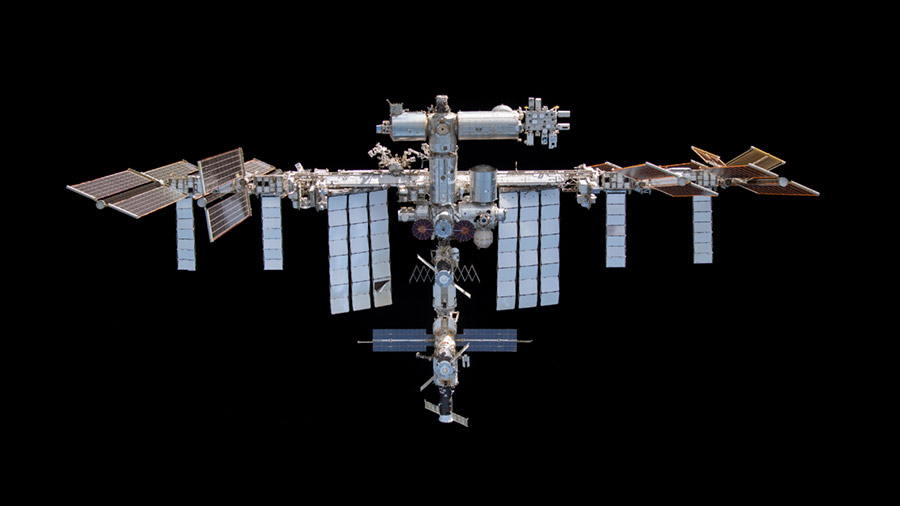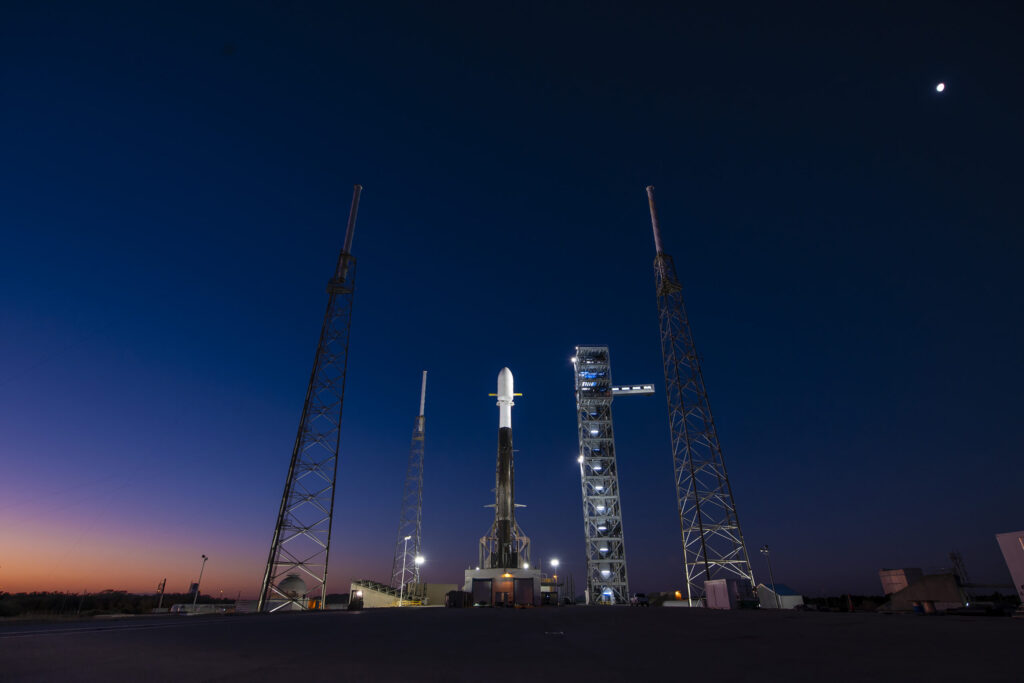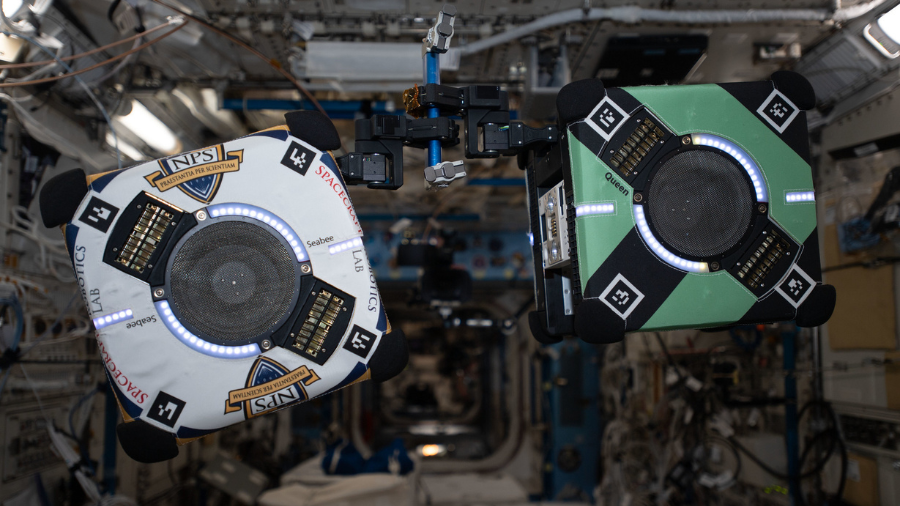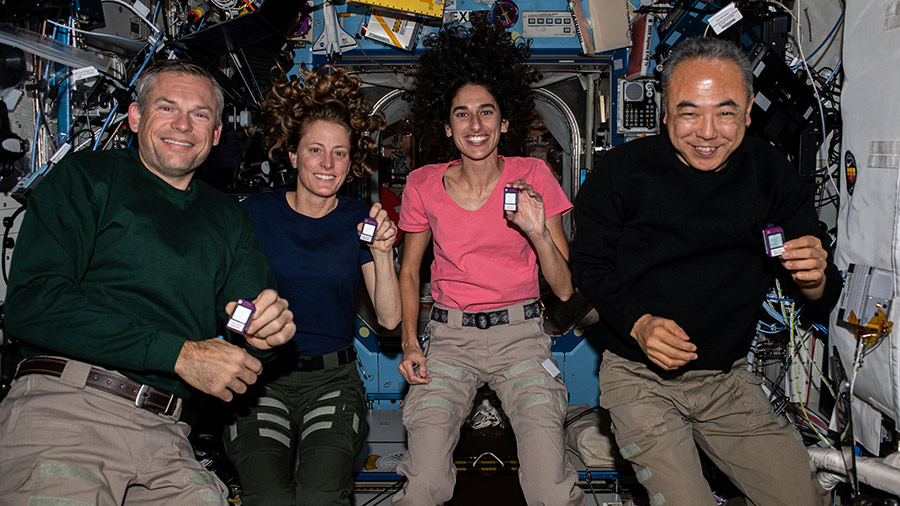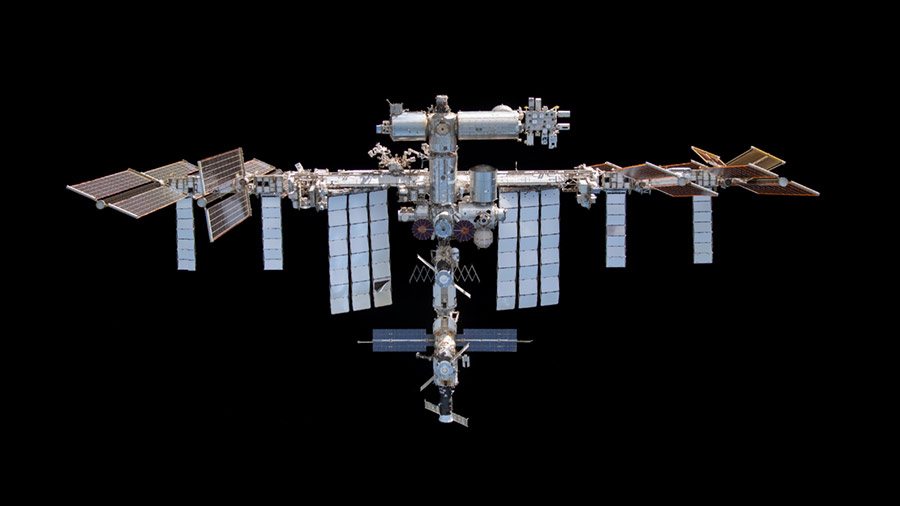
Research to promote health and advance manufacturing were the top science activities aboard the International Space Station on Tuesday. The Expedition 70 crew will also commemorate 25 years since the first two station modules were connected on orbit.
NASA Flight Engineer Jasmin Moghbeli began her day in the Kibo laboratory module working on the Cerebral Aging study that is exploring neurodegenerative processes. She processed brain cell-like samples inside Kibo’s Life Science Glovebox to understand the effects of microgravity at a molecular and cellular level. Results may advance research techniques, reduce drug development costs, and improve heath on Earth and in space.
Moghbeli later joined astronaut Satoshi Furukawa on Wednesday afternoon transferring cargo in and out of the SpaceX Dragon cargo spacecraft. Furukawa from JAXA (Japan Aerospace Exploration Agency) finalized his day checking the performance of a spherical robot camera that can operate remotely or autonomously inside Kibo.
Commander Andreas Mogensen worked in the Destiny laboratory module on fiber optics research installing experiment hardware in the Microgravity Science Glovebox. The advanced physics study may benefit Earth and space-based applications such as laser surgery, remote-sensing, atmospheric monitoring, and optical data communications. Mogensen from ESA (European Space Agency) wrapped up his day cleaning orbital plumbing hardware.
NASA Flight Engineer Loral O’Hara from NASA began her day inside the Columbus laboratory module removing electronic components from life science hardware. Afterward, she spent the rest of the day inside Kibo supporting more space biology work.
In the orbital outpost’s Roscosmos segment, veteran cosmonaut Oleg Kononenko serviced a carbon dioxide removal device then repositioned eggs in an incubator for a new biology experiment. Flight Engineer Nikolai Chub worked on cargo and water transfers from the newly docked Progress 86 cargo craft. Flight Engineer Konstantin Borisov worked on an oxygen generator, cleaned ventilation systems, then watered and photographed plants growing for a Roscosmos space botany study.
At 12:25 p.m. EST on Wednesday, all seven space station crew members will gather in the Harmony module for a live television conference commemorating 25 years of space station assembly. The orbital septet will receive a call from NASA Associate Administrator Bob Cabana and International Space Station Program Manager Joel Montalbano discussing the station’s evolution and its impact on Earth and space industries. Cabana commanded space shuttle Endeavour during the STS-88 mission on Dec. 6, 1998, when the Zarya and Unity modules were mated. The shuttle’s Canadarm robotic arm grappled Zarya and mated it to Unity stowed in Endeavour’s payload bay.
Watch live on the NASA+ streaming service via the web or the NASA app. Coverage also will air live on NASA Television, YouTube, and on the agency’s website. Learn how to stream NASA TV through a variety of platforms including social media.
Learn more about station activities by following the space station blog, @space_station and @ISS_Research on X, as well as the ISS Facebook and ISS Instagram accounts.
Get weekly video highlights at: https://roundupreads.jsc.nasa.gov/videoupdate/
Get the latest from NASA delivered every week. Subscribe here: www.nasa.gov/subscribe

